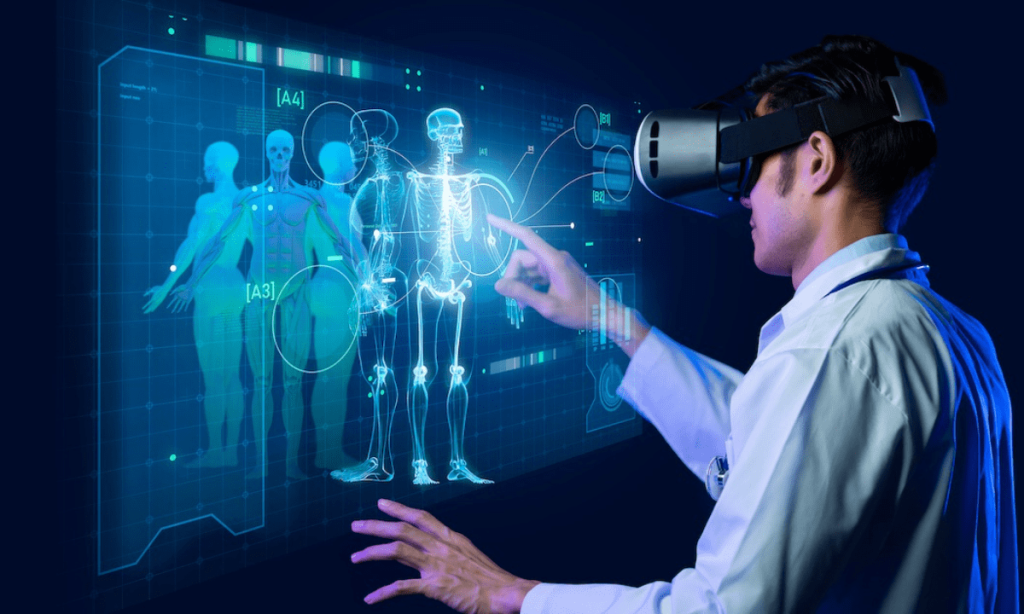
Artificial Intelligence (AI) is revolutionizing the healthcare sector, offering solutions that span from predictive diagnostics to enhanced patient care management.
By analyzing large datasets, AI identifies patterns and predicts potential health issues before they become critical, enabling timely interventions and improving patient outcomes.
Predictive Diagnostics: Early Detection Saves Lives
AI-powered tools assess medical histories, lab results, and imaging data to detect early signs of diseases such as cancer, heart conditions, and diabetes.
Predictive diagnostics allow doctors to create personalized treatment plans and preventive strategies. Early detection not only improves survival rates but also enhances patient satisfaction and overall healthcare efficiency.
Enhancing Patient Care with AI
AI-driven virtual assistants, chatbots, and monitoring systems provide real-time support and track vital signs remotely.
These tools help patients receive timely guidance while reducing the workload for healthcare staff. Additionally, AI-integrated electronic health records (EHR) streamline data management, giving providers easy access to comprehensive patient information across departments.
Operational Efficiency and Telemedicine
AI improves hospital operations by automating scheduling, predicting resource needs, and optimizing workflows. Integration with telemedicine platforms allows patients in remote or underserved areas to access quality care.
This combination of AI in healthcare ensures efficient patient management, reduces waiting times, and supports better decision-making.
Ethical and Privacy Considerations
While AI enhances healthcare services, maintaining data security and patient privacy is critical. Compliance with regulations such as HIPAA and GDPR ensures trust, ethical AI usage, and safe handling of sensitive medical information.
Conclusion: Transforming Healthcare with AI
From predictive diagnostics to real-time patient care management, AI is reshaping the healthcare experience. It empowers providers to deliver personalized, efficient, and high-quality services, ultimately improving patient outcomes and satisfaction.
As AI technology evolves, its role in healthcare will continue to expand, transforming both patient experiences and medical practices.
